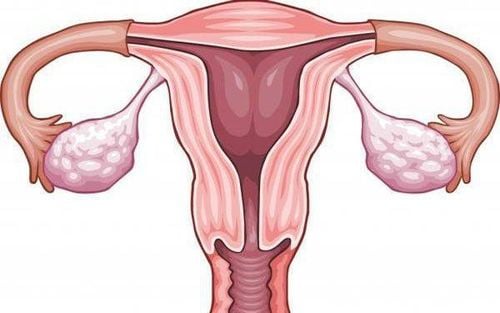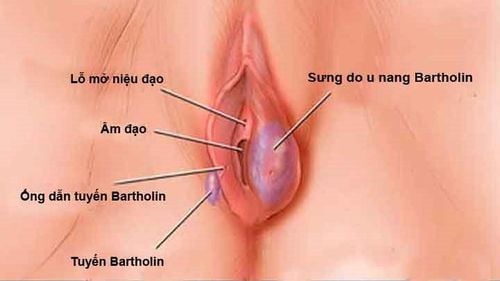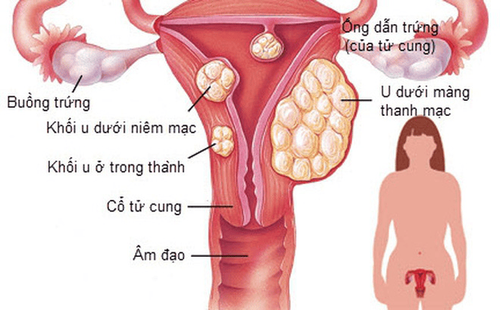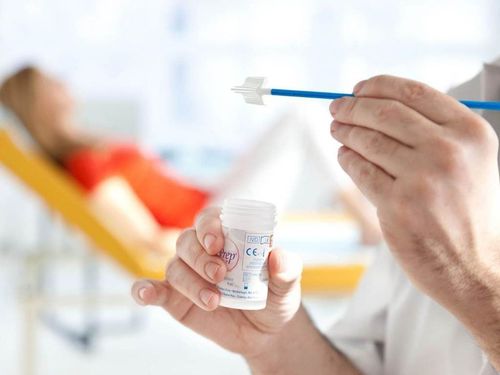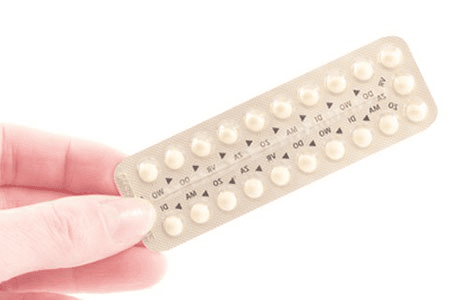This is an automatically translated article.
There are many causes of menorrhagia. There are different causes depending on age. Most women when they first have menorrhagia often have anxiety about why they have menorrhagia and how to treat menorrhagia? Menstruation is a sign of uterine fibroids?
1. What is menorrhagia?
Normally menstruation usually lasts from 3-5 days. If menstruation lasts more than 7 days and loses more than 80% in a cycle or twice the normal amount of menstrual blood, it is menorrhagia.
Menorrhagia due to many causes, depending on age, can include the following common causes:
Puberty: Functional causes, blood clotting disorders, tumors, inflammation, pregnancy complications Childbearing age: Pregnancy complications, uterine fibroids, genital inflammation, polyps, malignancies, trauma, thyroid disorders, IUD use, endometriosis... Functional factors, cervical cancer, endometrial cancer, ovarian cancer, genital inflammation, pregnancy complications Menopause: endometrial atrophy, vagina, estrogen use, cancer endometrial polyps, cervical polyps,... Anti-inflammatory drugs and anticoagulants can lead to heavy menstrual bleeding.

Nếu tình trạng kinh nguyệt kéo dài và gấp đôi lượng máu kinh bình thường thì đó là tình trạng rong kinh.
2. Learn about uterine fibroids
Uterine fibroids are benign tumors of uterine smooth muscle cells. Most uterine fibroids usually have no symptoms, but these tumors grow large, causing severe abdominal pain and menstrual disturbances.The cause of uterine fibroids is not clear yet. Several studies demonstrate that the growth of the disease is related to the female hormones estrogen and progesterone. Therefore, many women find out they have uterine fibroids during pregnancy when having a pregnancy ultrasound. Women who menstruate at a younger age have a higher risk of developing uterine fibroids than women who have late periods.
3. Menorrhagia – one of the signs of uterine fibroids
Uterine fibroids can cause infertility and are common in women of reproductive age. Therefore, patients need to know the symptoms of the disease in order to promptly treat and prevent complications.
Some common signs of uterine fibroids include:
Menstrual disorders: The menstrual cycle is irregular, not consistent with the menstrual cycle, most likely this is one of the symptoms of uterine fibroids. supply you should not be subjective. Menorrhagia, abnormal amount of menstrual blood, massive discharge at many times can be one of the signs of uterine fibroids that need to be examined soon. Abdominal pain in the lower abdomen: A persistent dull pain in the lower abdomen. The pain can be intermittent, even continuous, which is also one of the symptoms of uterine fibroids. Unexplained persistent back and pelvic pain. Urinary tract disorders: Due to tumor growth, it will press on surrounding organs such as: Bladder, rectum, ... causing constipation, frequent urination or difficulty urinating. When not detected and treated promptly, the patient may experience complications of uterine fibroids such as: Hemorrhage at birth, tumor rupture, haemorrhage; high risk of miscarriage; infertility...

U xơ tử cung có thể gây vô sinh và thường gặp ở phụ nữ trong độ tuổi sinh sản
4. Treatment of menorrhagia in uterine fibroids
To treat menorrhagia definitively, it is necessary to treat the cause of menorrhagia. Treatment of menorrhagia – signs of uterine fibroids too. The goal of treatment is to relieve symptoms of uterine bleeding, pain, reduce symptoms of compression, and reduce tumor size.
Treatment of uterine fibroids can be by means of monitoring, medical treatment or surgery.
For medical treatment, only treat when there are symptoms: Menorrhagia, heavy bleeding, hypermenorrhea, menstrual disorders, pain, signs of compression. Treatment includes sex hormone drugs, combined oral contraceptives,... aimed at reducing tumor size. Surgery: Indications for surgery depend on specific cases such as large tumors, medical treatment. no results, causing many complications, affecting pregnancy,... Surgical methods include: fibroid removal, hysterectomy, uterine artery ligation. Then the symptoms of menorrhagia will disappear when the uterine fibroids are removed. To treat menorrhagia due to uterine fibroids, it is necessary to treat it according to the instructions of the doctor at reputable facilities to bring the best effect to the patient, without causing complications and not affecting the life of the patient. live later.

Để điều trị rong kinh dứt điểm việc cần làm là điều trị nguyên nhân rong kinh
In order to help customers detect and treat other gynecological diseases early, Vinmec International Hospital has a basic gynecological examination and screening package, helping customers detect early inflammatory diseases Easy, inexpensive treatment. Screening detects gynecological cancer (cervical cancer) early even when there are no symptoms.
Basic gynecological examination and screening package for female customers, has no age limit and may have the following symptoms:
Abnormal vaginal bleeding Having menstrual problems: irregular menstrual cycle, irregular menstrual cycle Irregular vaginal discharge (smell, different color) Vaginal pain and itching Female clients have several risk factors such as poor personal hygiene, Unsafe sex, abortion,... Female customers have other symptoms such as: Abnormal vaginal discharge, itching, pain in the private area, abnormal vaginal bleeding.
Please dial HOTLINE for more information or register for an appointment HERE. Download MyVinmec app to make appointments faster and to manage your bookings easily.
SEE MORE
How to treat uterine fibroids? Who is at risk for uterine fibroids? Are malignant uterine fibroids curable?




